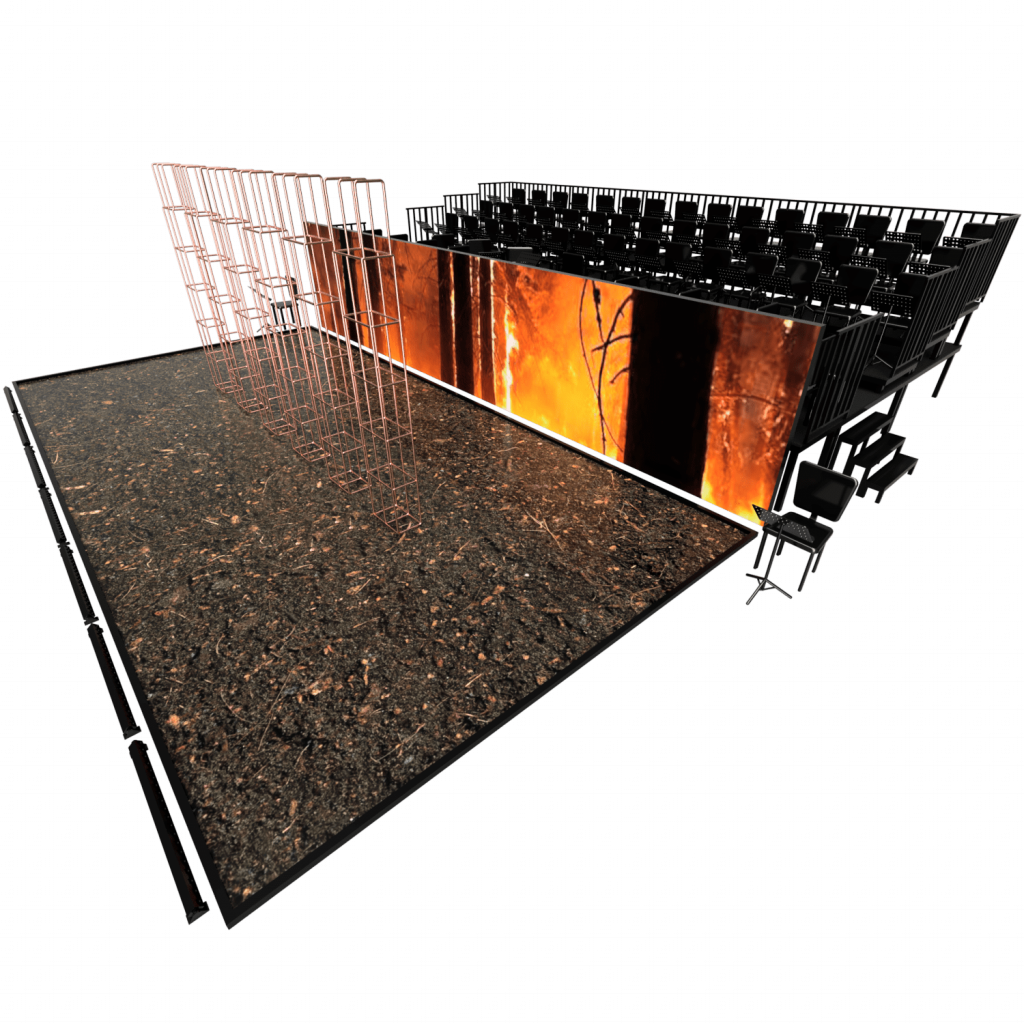MONU
libretto and staging for Benjamien Lycke’s multimedial war requiem – Concertgebouw Brugge (BE), April 2015
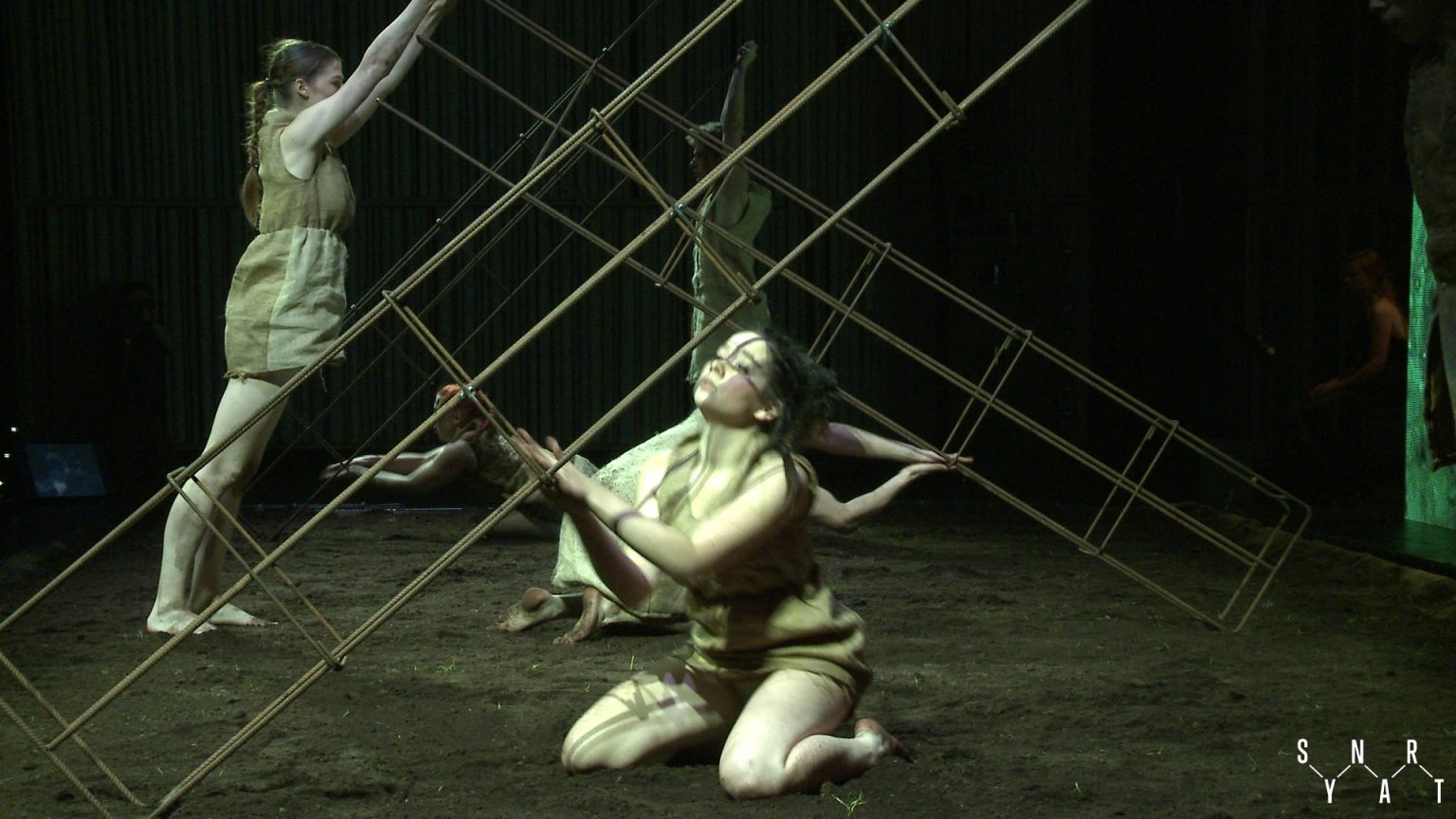
ABOUT
All are from the dust and all will return to dust. Individuals, thrown into the world at the end of the 19th century without knowing why, acquire self-consciousness and painfully experience the tragedy of life. Out of loneliness, they start looking for love. A man unsuccessfully tries to win the heart of a woman by making fun of other nations. Rejected, he drastically denies love and gets himself a job in a factory as an assembly line worker, trying to switch off his thinking. An exhausted individual comes home and has too little to eat. He leaves the house and goes to a pub where he witnesses a change of morality. People feel the need to cross the boundaries of everyday life. They are longing for danger, they are aiming for the extreme. A clairvoyance, the Sibyl, predicts a bad ending, but nobody is listening. Everywhere, the call of war is heard. After a lot of propaganda by the authorities, suddenly one man takes action. The first tree is chopped. The steel reinforcement cages are falling. Franz Ferdinand from Austria dies and war is upcoming. Soon, the European soil will be a giant offering table on which millions of young men are slaughtered.
MONU is a multimedia requiem of war for large choir, string orchestra, organ, trombone, percussion, soprano and tenor, composed by Benjamien Lycke to a libretto by Mien Bogaert. The libretto of MONU is a clash between text fragments of the classical requiem, and citations from poets, philosophers and journalists. These citations build a storyline about an individual who is thrown in the world at the end of the 19th century and soon gets acquainted with both nationalism and industrialisation. The individual experiences how Christian morality is replaced by the Homeric code of honour, loyalty and revenge. War is calling and words are translated in deeds. However, standing on the battlefield, the products of the industrialisation, the nationalistic pride and the Homeric code get drowned in mud. The individual is torn out of life as brutal as he was thrown into the world, and even a heart-breaking lament of a left-behind lover cannot change this. MONU’s staging includes a choreography for six dancers and two opera soloists, a set design and several video projections. The dancers and opera soloists visualise the story of the individual, playing with steel reinforcement cages (products of the industrialisation), earth (the mud of a trench warfare), and jute (required to restrain the mud). The dancers and soloists are performing in front of a huge LED wall on which the process of deforestation is shown, with the tree as a metaphor for the individual soldier.
TEAM
David Anne, conductor
Mien Bogaert, stage direction and dramaturgy
Jason Slabbynck, graphic design, video and set
Talitha De Decker, choreography
Nathalie Aerts, costumes
CAST
Louise Kuyvenhoven, soprano
Denzil Delaere, tenor
Ars Vocalis, De Wijngaard, choirs
Mithra Van Eenhooge, organ
The Chamber Players, orchestra
Pieter Desmet, Lucas Devroe, Jolien Michielsen, Nora Monsecour, Shahkaar Mughal, Inda Samyn, dancers
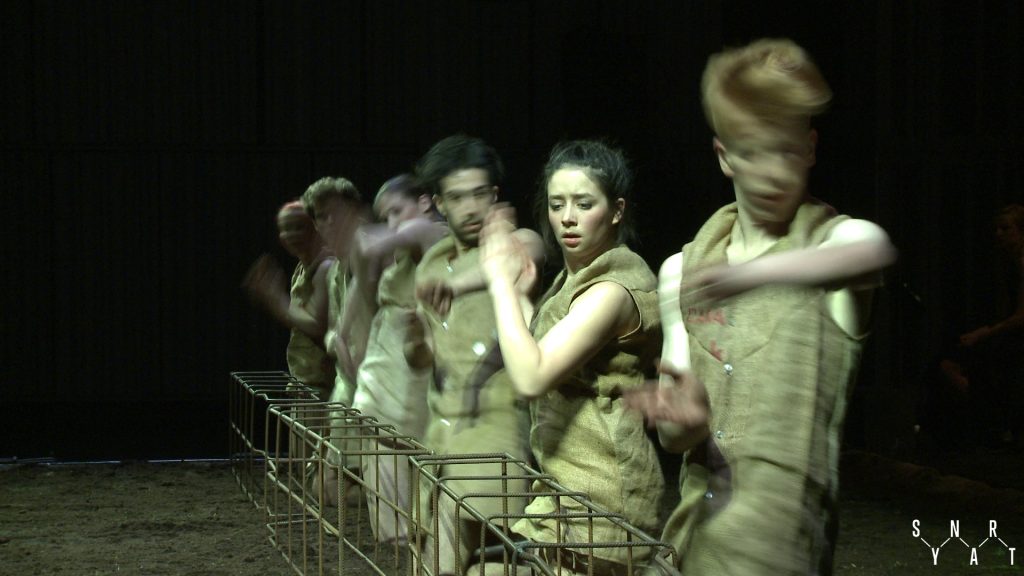
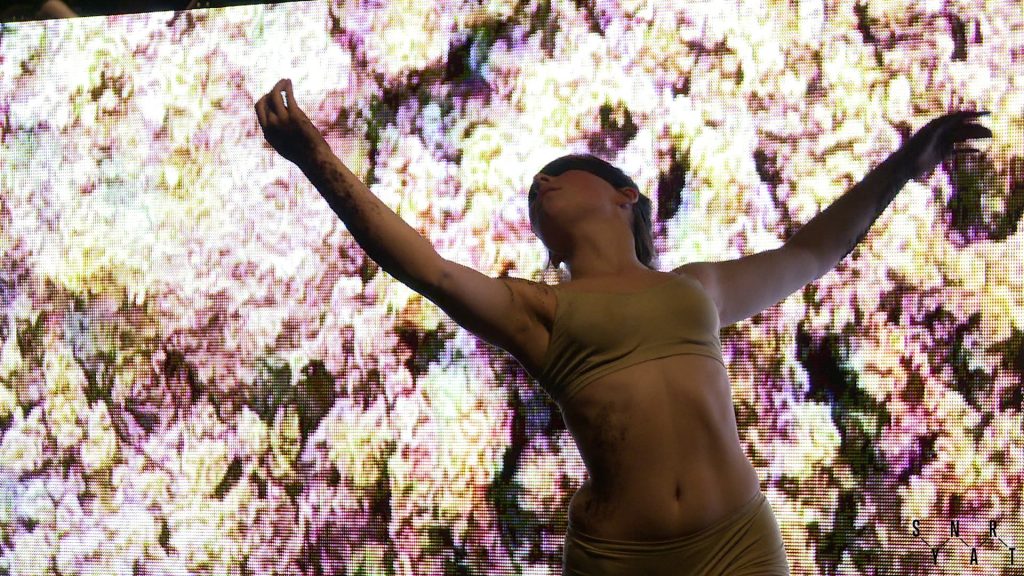
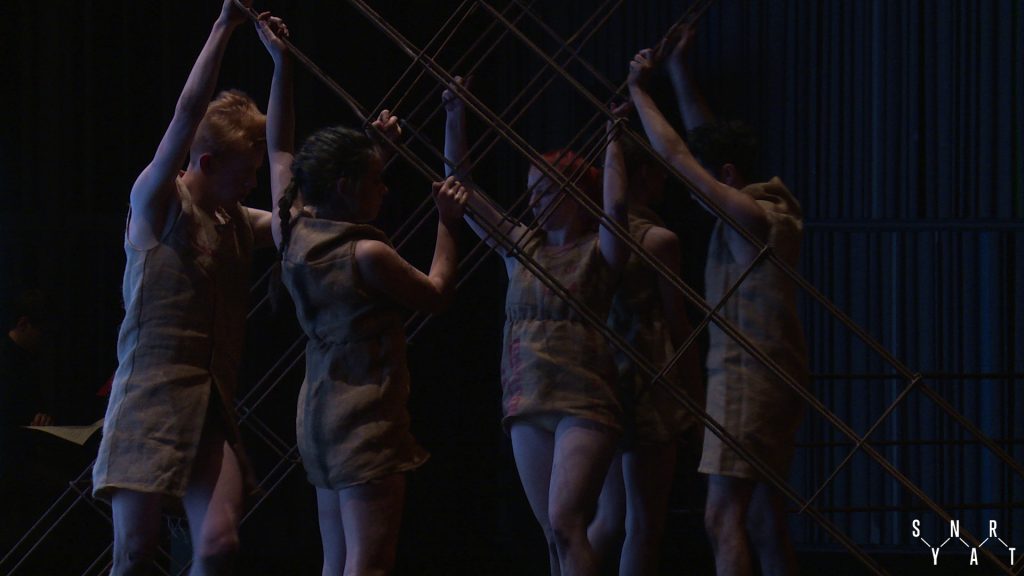
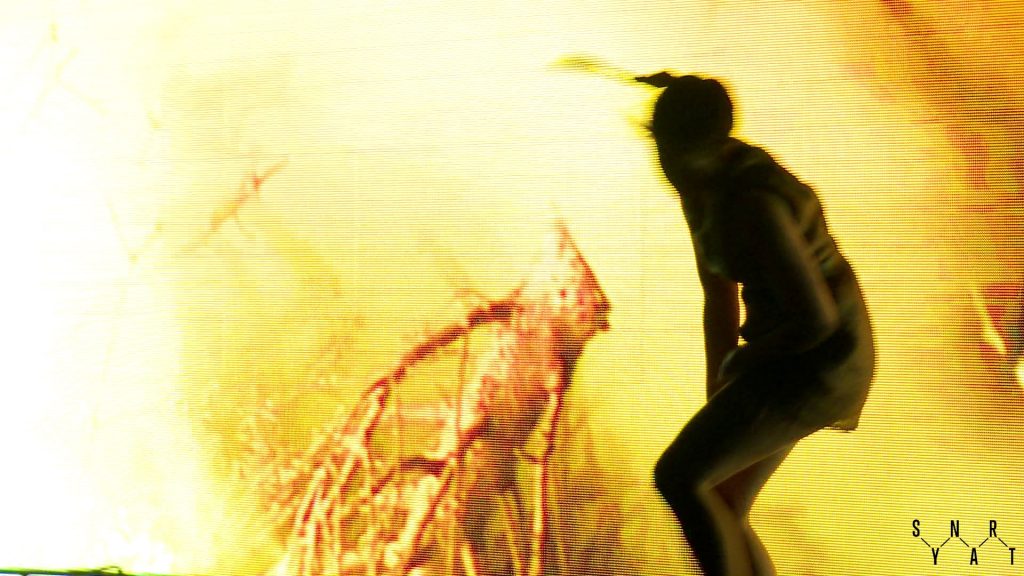
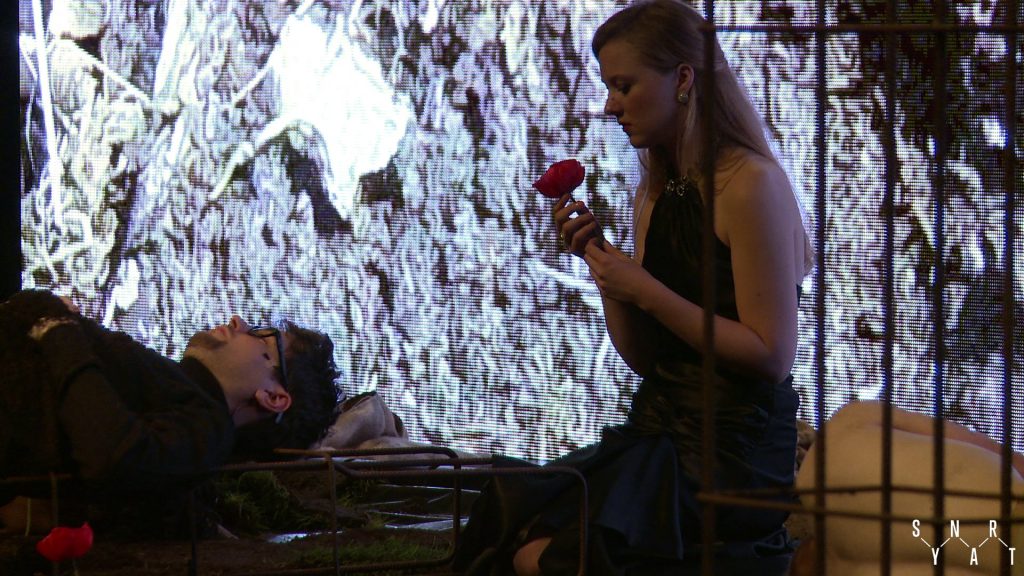
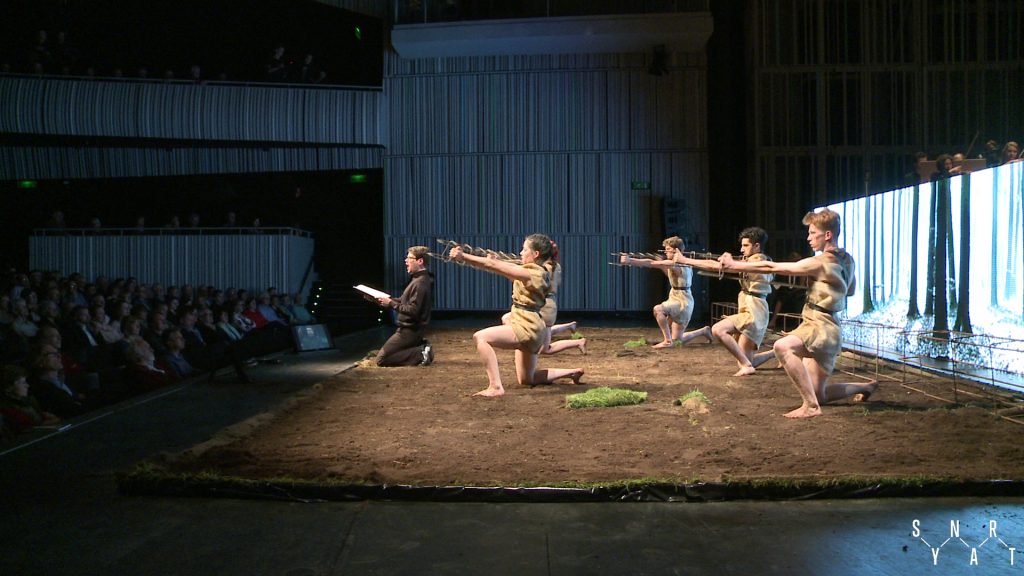
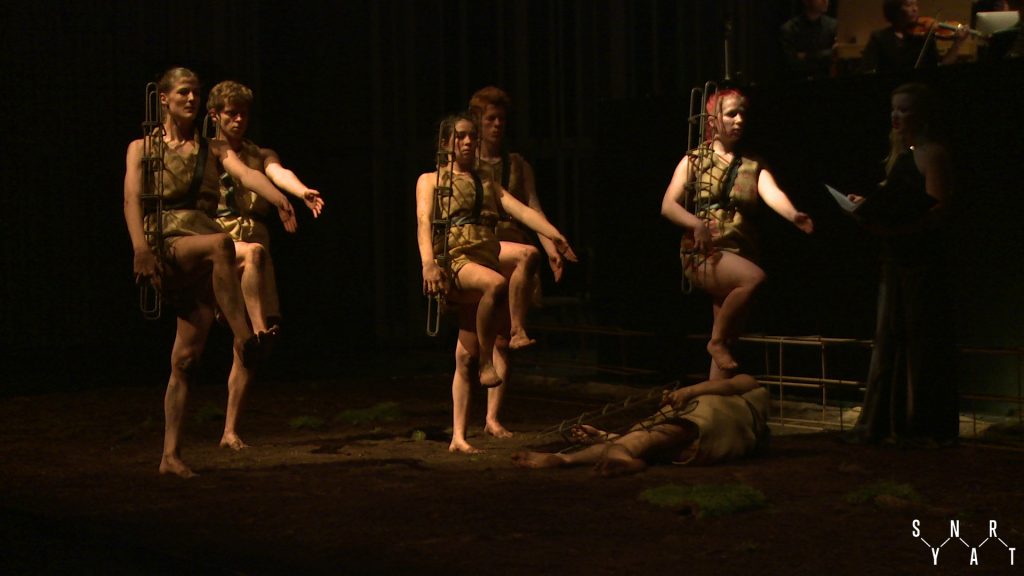
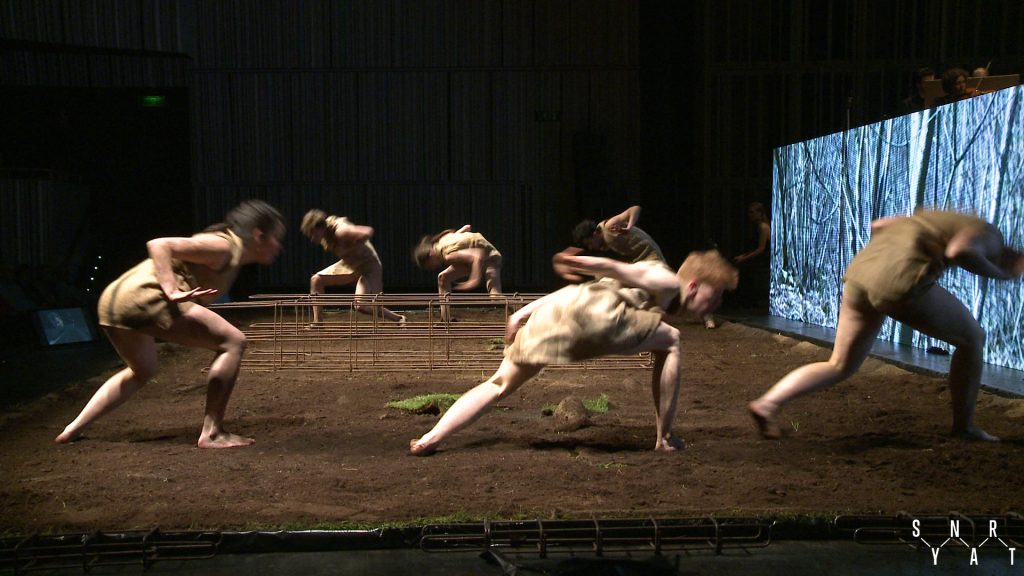
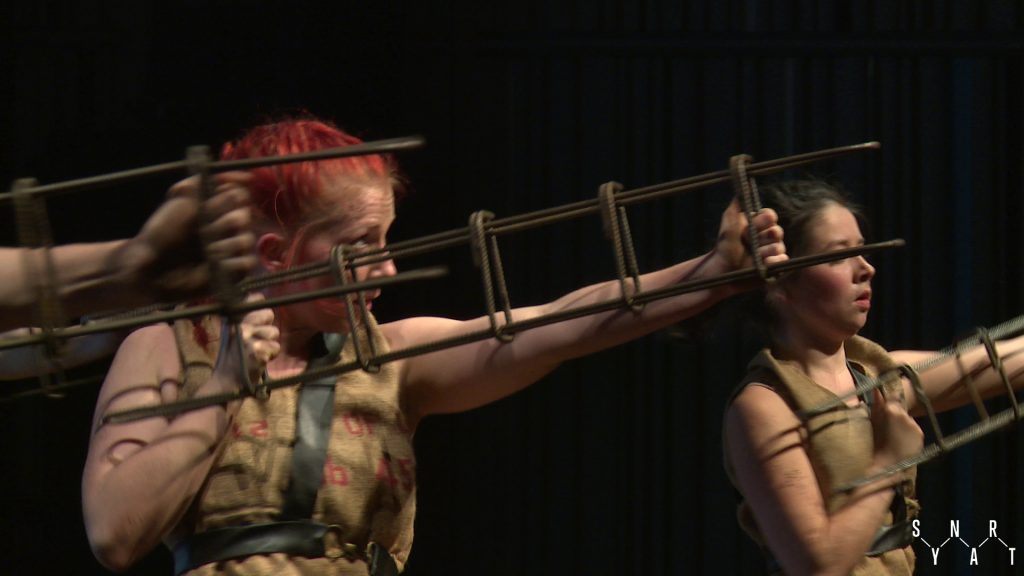
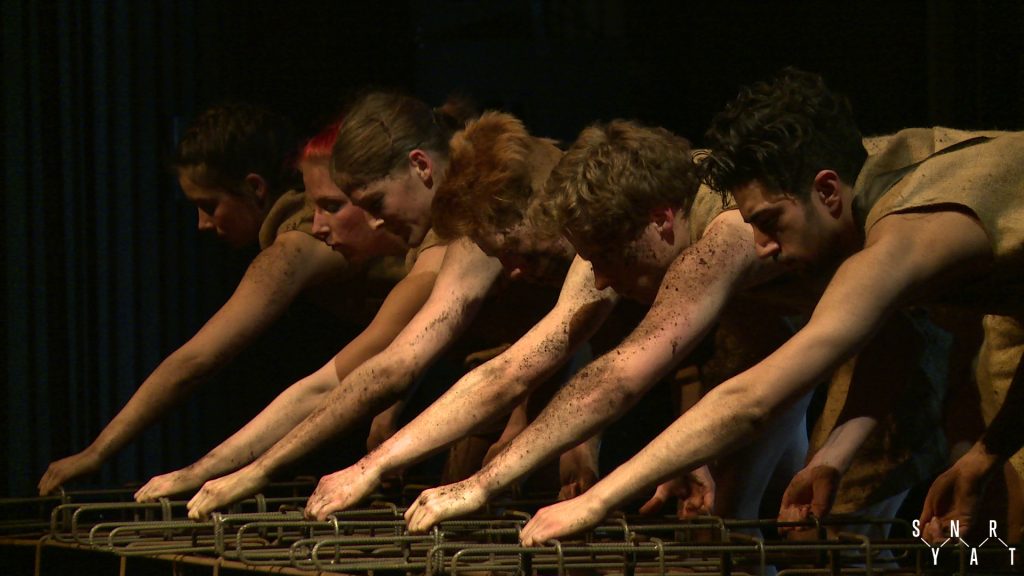
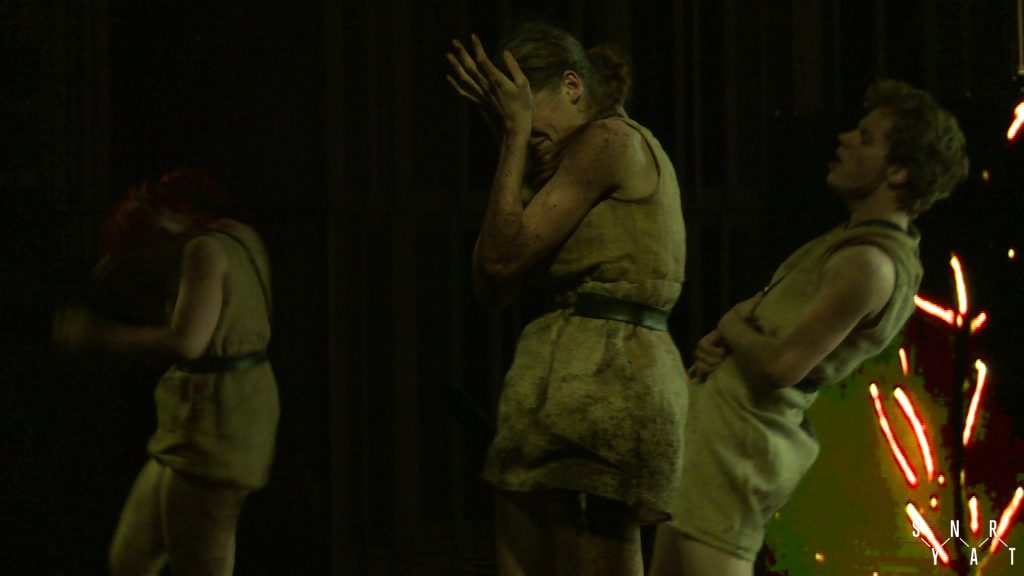
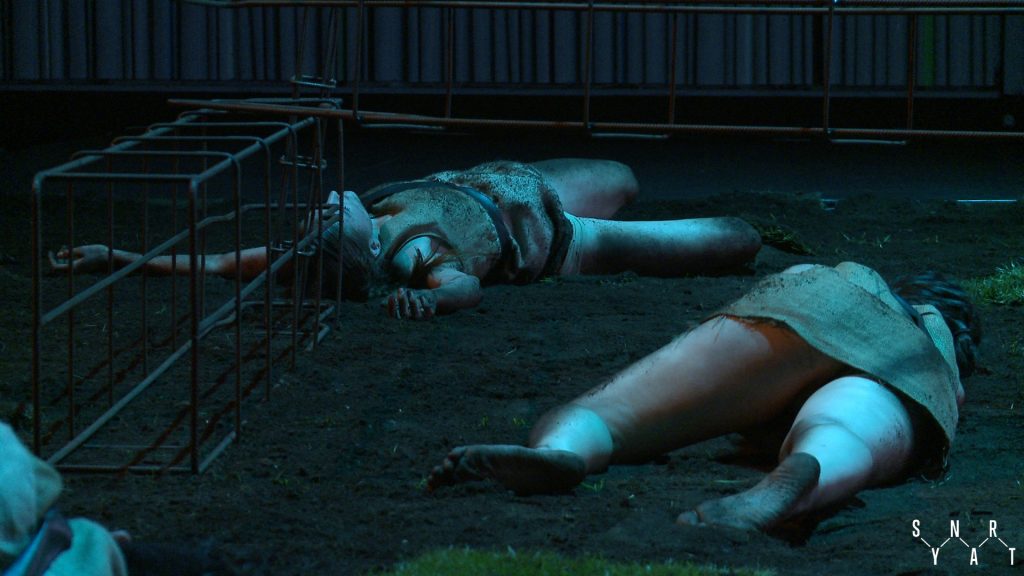
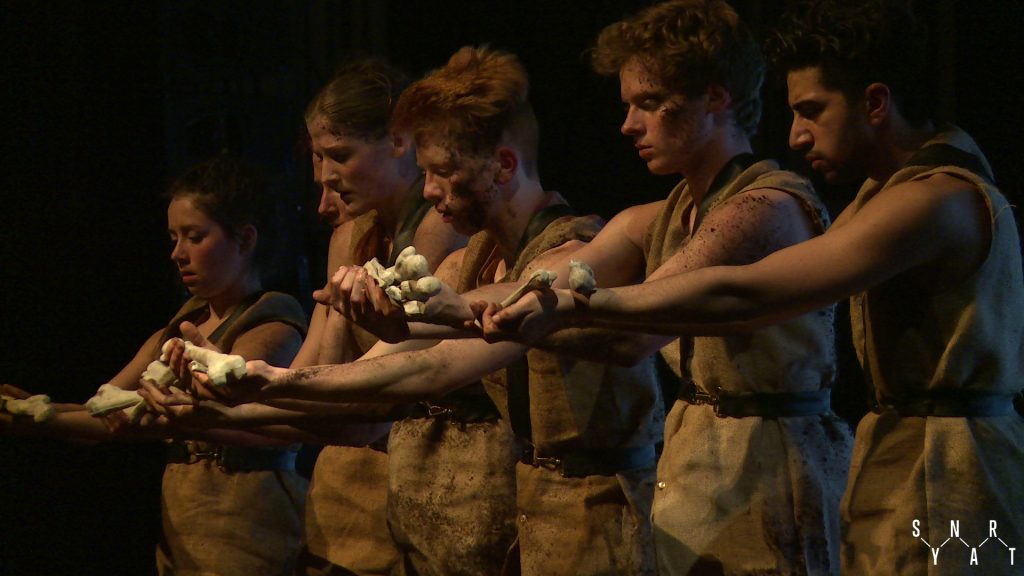
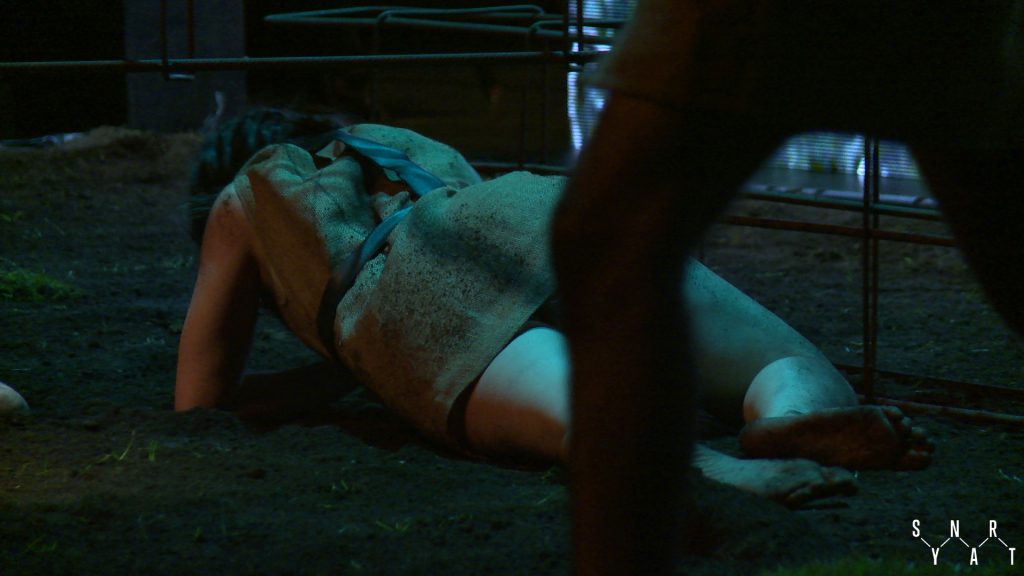
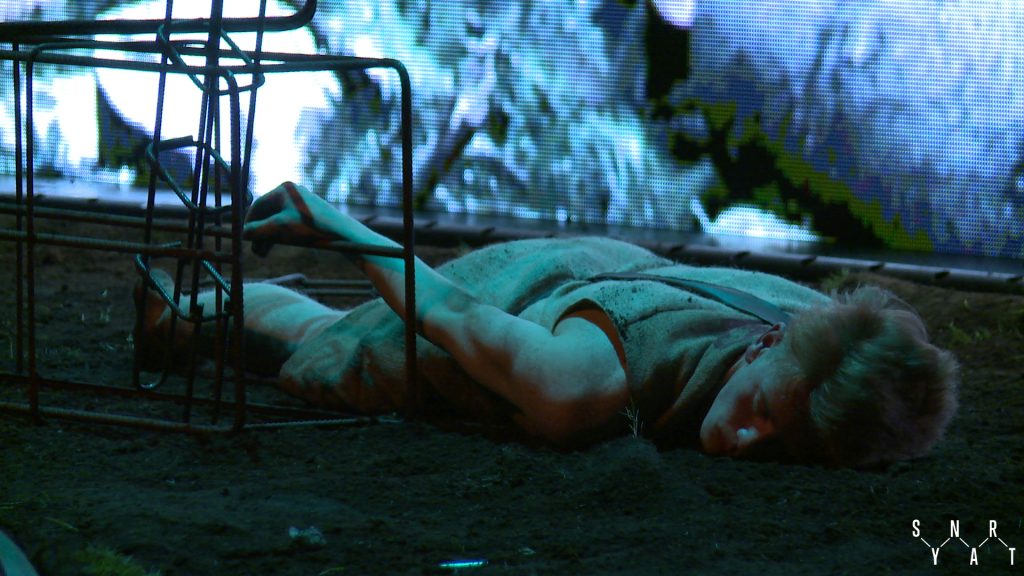
PERFORMANCES
April 22, 2015 at Concertgebouw Brugge (BE)
“MONU ontroert en doet dromen. (…) Zo verbluffen ze de oude garde met durf en visie. Ik buig heel erg diep voor dit jonge geweld.”
– Kurt Van Eeghem on Klara
